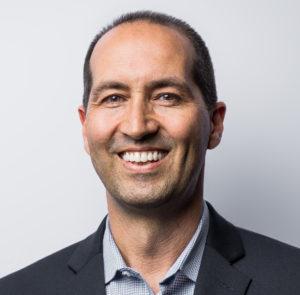
In this article, I want to introduce a unique way of approaching the challenges you are facing right now. It’s far different than the way you were likely taught to think about leading in a time of uncertainty and even chaos.
It’s a method the world’s most successful entrepreneurs use when approaching situations they have never faced before.
By the end of this post, you will be able to apply this distinct type of thinking to the unique challenges being thrown at you in today’s environment.
The Chopping Block
These days, I’m feeling like one of the chefs competing on the television show, Chopped.
Are you familiar with this Food Network show?
On each episode, four chefs compete in a three-round contest (appetizer, entree, and dessert) for a $10,000 prize. At the start of each round, the chefs are presented with four “mystery ingredients” they must incorporate into their dish. At the end of each round, a chef is “chopped” and eliminated from the competition, until one winner is left standing.
A typical round starts like this: “Okay, chefs, open your baskets. Today’s mystery ingredients are cow tongue, licorice, kumquats, and evaporated milk. You have 20 minutes to make a delicious appetizer that wows the judges. Time starts now.”
On the spot, each chef decides what they’ll make that incorporates all four ingredients into the dish. Talk about skill and creativity!
Isn’t that how each workday feels right now to you? “Alright, marketers and leaders, no one wants to buy anything you are selling right now. They’re scared and bleeding cash. You have eight hours on the clock to make a sale. Time starts now.”
It’s as if we grew up practicing and performing classical music and, seemingly overnight, we’re expected to walk on stage and play jazz.
Here’s the good news. The type of thinking those chefs are using is the same type of thinking the world’s most successful entrepreneurs used when they started and scaled their businesses.
And that type of thinking is available to you and me.
Success in a time of uncertainty
This journey toward creative thinking started for me in 2011, when I was introduced to the research of Dr. Saras Sarasvathy, in a magazine article about how great entrepreneurs think.
Dr. Sarasvathy, who teaches at the University of Virginia Darden School of Business, studied U.S. entrepreneurs to understand what makes them entrepreneurial — what distinguishes them from other types of professionals. And, as importantly, can their approach can be learned by others?
She presented each founder with 10 problems they had to overcome to build a company. Each entrepreneur started with the exact same product idea and had two hours to complete the exercise.
What Dr. Sarasvathy discovered is that entrepreneurs use what she calls “effectual reasoning,” rather than “causal reasoning” to approach novel situations.
Causal Vs Effectual Reasoning: What’s the Difference?
To understand the difference between causal and effectual reasoning, think of the difference between the words “cause” and “effect.”
According to Dr. Sarasvathy, MBA students are taught predictive reasoning, which essentially is causal thinking. Causal thinking starts with a pre-determined goal (i.e. a cause) and seeks the most efficient/effective means to achieve that goal.
Effectual reasoning is quite different. This mode of thinking doesn’t start with a goal. It begins with a focus on the means (i.e. the journey), then allows goals to emerge over time.
With causal reasoning, the means serve the pre-determined goal. With effectual reasoning, potential goals serve the pre-determined means.
Causal thinking may or may not employ creative thinking. However, effectual thinking is inherently creative. It demands imagination, spontaneity, and risk-taking.
Causal thinking emphasizes strategy and planning. Effectual thinking emphasizes execution. And typically starts with the means that are closest at hand.
It’s important to note that neither causal nor effectual reasoning is necessarily superior. Just like analytical thinking isn’t better or worse than creative thinking. These modes of thinking are situational.
However, effectual reasoning is at its best in a time of uncertainty or unknowable situations. Causal reasoning is at its best in structured situations. That’s why entrepreneurs thrive during the start-up phase of a venture. And seasoned executives, who think causally, are necessary as a venture matures and requires policies, processes, and systems.
How a 16-Year-Old Applied Effectual Thinking in a Pandemic
As the COVID-19 pandemic escalated throughout the U.S., high school sophomore Grey Cohen overheard her uncle ask whether he could have pizzas delivered to a shift of workers at the hospital.
Cohen immediately thought, “Why can’t we make this a bigger thing?” After all, her mom is a hospital-based speech pathologist and her dad owns an advertising agency.
Over a weekend, Cohen and her parents established The Meal Bridge, an online platform that allows people to purchase meals for healthcare workers on the front lines of the pandemic, while simultaneously supporting local restaurants.
This is an example of effectual thinking at its best! Cohen saw a job to be done — providing meals for healthcare workers on the front lines AND helping local restaurants. Then she quickly got to work with what she had available: a dad who can create branding and a website, a mom who worked at a hospital and her buzz-worthiness as an entrepreneurial youth.
She hit a few early roadblocks like hospital bureaucracy and delivery mishaps but was able to quickly solve these and scale the initiative.
Four Questions to Kickstart Effectual Thinking
If a 16-year-old can use effectual thinking to launch a cause over a weekend, surely you and I can use it to find breakthroughs in the time of uncertainty we face!
Here are four questions, drawn from Dr. Sarasvathy’s research, that can help you tap into the power of effectual thinking:
1. “Is this situation within my ability to control and/or predict?”
Remember, causal reasoning deals with things that are predictable and within your control. Effectual reasoning can be applied to a time of uncertainty. If the situation you’re facing is controllable/predictable, then set a goal, rally the resources you need to achieve the goal, and get to work. But if you’re facing a future that is unknowable, proceed to Question 2.
2. “What can I test today at little-to-no money, time, and effort?”
Entrepreneurs don’t start with market research, they start with selling. They find the nearest first customer and figure out what they will buy. Then they go build or buy that.
Your causal brain gets seduced by the highest potential return. However, your effectual brain should focus on affordable loss, not ROI. Who, within your local region, social network, or area of expertise can you try to sell today for the least possible money, time, and effort?
3. “Who do I already know that I could partner with?”
Causal thinkers are obsessed with the competition. Not entrepreneurs. They obsess over strategic partnerships and allies, which ties nicely to “affordable loss” thinking in Question 2.
What stakeholders do you already know, in your network, industry or local area, that you could obtain pre-commitments from to start testing sales?
4. “How will I leverage contingencies?”
Your causal brain seeks prediction from pre-existing knowledge; however, with effectual thinking, you should seek contingencies. It’s not the surprises that count, it’s the way you leverage the surprises that matter.
What’s going on around you today? What functional, emotional, and social jobs are people trying to get done in their lives — and how could you profitably deliver a solution?
Effectual reasoning is all about accomplishing as much as you can, as early as you can, while spending as little as you can to create a customer.
Opportunities Hiding in Plain Sight
If you take anything away from this article, I hope it’s this:
Stop unconsciously defaulting to causal thinking when facing problems! Instead, start by asking yourself, “Does this situation require causal or effectual reasoning?”
If the outcome is already pre-determined and/or within your control, then proceed with causal. However, if the outcome is uncertain, then you are like the chef on the show Chopped. And your best way forward is through effectuation.
No one could have predicted everything that’s played out in this pandemic. And no one — not even the greatest AI — can predict where things will end up amid this time of uncertainty.
Each day, we are being presented with a new basket of mystery ingredients. Our team, employees, clients, and partners are counting on us to use these ingredients in ways that help us survive and, eventually, thrive.
The opportunity hiding in all this is that you and I have the ability to co-create what that future can be. The big question is this: What can we test today to begin the journey toward that future?
 Keith Reynold Jennings is an executive and writer who serves as vice president of community impact for Jackson Healthcare. He’s also an advisor to goBeyondProfit. Connect with Keith on Twitter and Linkedin.
Keith Reynold Jennings is an executive and writer who serves as vice president of community impact for Jackson Healthcare. He’s also an advisor to goBeyondProfit. Connect with Keith on Twitter and Linkedin.


